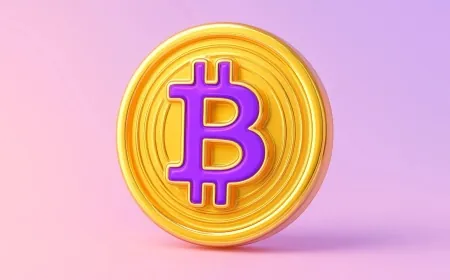New Ether ETFs Launch: Investors Cautious Compared to Bitcoin Success
New ether ETFs launch with cautious investor reactions. Learn why these funds are receiving less excitement compared to Bitcoin ETFs and what to expect

The U.S. is about to launch new exchange-traded funds (ETFs) based on ether, the second-largest cryptocurrency. Unlike the excitement that surrounded Bitcoin ETFs earlier this year, the new ether ETFs are receiving a more cautious reception from investors.
Scheduled to debut on Tuesday, these ETFs from major firms like BlackRock and VanEck come six months after Bitcoin ETFs made a big splash. While Bitcoin ETFs quickly attracted large investments, many investors are now carefully weighing their options with ether ETFs. Concerns include the lack of staking rewards, a feature that allows ether holders to earn additional returns, which won’t be available through these new ETFs.
Mixed Reactions as New Ether Exchange-Traded Funds Hit U.S. Market
The U.S. is about to see the launch of new exchange-traded funds (ETFs) tied to ether, the second-largest cryptocurrency. However, unlike the excitement that surrounded Bitcoin ETFs earlier this year, investors are showing more caution and uncertainty about these new ether ETFs.
What’s Happening with Ether ETFs?
On Tuesday, nine asset managers, including big names like BlackRock, VanEck, and Franklin Templeton, will launch ether ETFs on U.S. trading platforms. This comes six months after Bitcoin ETFs made their debut in January. While the Bitcoin ETFs quickly drew significant investment, expectations for the ether ETFs are more reserved. Analysts predict ether ETFs might capture around 25% of the investment flows that Bitcoin ETFs did, but some, like Steven McClurg from CoinShares, think it could be closer to 10%.
Why the Caution?
One key reason for the caution is the SEC’s decision not to include ether staking in these ETFs. Staking is a process where users lock up their ether to help secure the Ethereum network and earn rewards. These rewards, or yields, can add a significant return, around 3.12% annually as of July 22, according to StakingRewards.com. However, the SEC’s rules will only allow the ETFs to hold unstaked ether, meaning investors won’t benefit from these rewards through the ETFs.
Impact of Not Including Staking
Excluding staking rewards from the ETFs might make them less appealing to some investors. It’s similar to buying a bond but not receiving interest payments, which might not make much sense to those looking to earn additional returns. Instead, investors might choose to stake their ether outside of the ETFs to earn these rewards.
Market Reactions and ETF Participation
Nathan Gauvin from Gray Digital and Chanchal Smadder from ETC Group have voiced concerns about the lack of staking rewards. Gauvin believes that staking might eventually be included in ether ETFs in the future but is not part of this initial launch. Smadder compared the situation to owning a stock without dividends, noting that demand for staked ether products is currently higher.
Liquidity Issues with Staking
Smadder also highlighted that staking can lead to liquidity problems, as there might be delays of up to nine days for withdrawing staked ether. Unstaked ether, on the other hand, remains accessible and liquid at all times.
The Bigger Picture
Nana Murugesan from Matter Labs sees the launch of ether ETFs as an important step for the cryptocurrency market. He believes that as Ethereum’s use and adoption grow, the value of these ETFs could increase, benefiting from the broader impact of the Ethereum network.
Comparing with Bitcoin ETFs
Investors expect that ether ETFs won’t attract as much investment as Bitcoin ETFs, mainly because ether’s market value is smaller—$424 billion compared to Bitcoin’s $1.4 trillion. Bitcoin ETFs saw nearly $7 billion in investments within their first three weeks and a total of $33.1 billion by the end of June.
As the ether ETFs prepare to launch, the market remains divided. Investors are weighing the potential benefits against the limitations set by current regulations.
Also Read: SEC to Approve Spot-Ether ETFs: Major Milestone for Cryptocurrency Market






























































